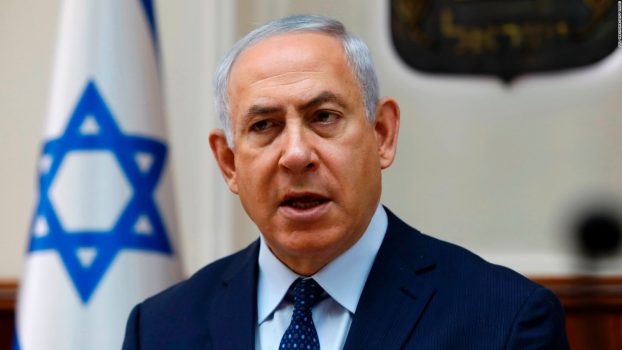 Israeli Prime Minister, Benjamin Netanyahu on Wednesday requested immunity from prosecution in three corruption cases in which he faces indictment on charges of bribery, fraud and breach of trust.
Israeli Prime Minister, Benjamin Netanyahu on Wednesday requested immunity from prosecution in three corruption cases in which he faces indictment on charges of bribery, fraud and breach of trust.
Netanyahu, who submitted the request to the Knesset on Wednesday night reiterated his desire to lead the State of Israel for many years to come.
“What is being done to me is a field court-martial by misleading the public. The immunity law is intended to protect elected officials from fabricated legal proceedings,” Netanyahu said in a televised statement.
He added: “From political indictment intended to damage the will of the people, this law intends to ensure that those elected can serve the people according to the will of the people, not the will of the law clerks.”
However, his political rivals including Benny Gantz, who leads the Blue and White Party have kicked against the request, arguing that voters will have two choices in the upcoming elections in March. Shortly after Netanyahu’s speech Gantz said:
“The interests of Netanyahu will win or the national interest will win. Or there will be an extreme immunity government or there will be broad unity government. Or the kingdom of Netanyahu or the State of Israel. Blue and White led by me will do everything according to the law.”
Moments after Netanyahu’s statement, former Defense Minister, Avigdor Liberman said in a statement that his Yisrael Beiteinu party would vote unanimously against immunity.
His words: “It’s now clear beyond any doubt. All that Netanyahu is interested in is immunity. This is what he wakes up with in the morning, this is what he lives, this is what he breathes throughout the day, this is what he goes to bed with.
“The State of Israel has become a hostage of a private personal problem of Netanyahu.”
Members of Knesset, including the Prime Minister are entitled by law to request parliamentary immunity from prosecution. The request is then considered by the Knesset’s House Committee.
If approved by the committee, the request is then passed on to a vote in the full 120-member Knesset.
Although members of the opposition have said that they would seek to form a temporary House Committee to consider the immunity request, it is unclear at this stage if such a move is likely to happen.
If granted, the immunity from prosecution applies only to the current Knesset, meaning that Netanyahu would have to request immunity again following any subsequent election.
If the immunity request is rejected, Netanyahu does not have to resign immediately. Under Israeli law, he can remain Prime Minister while the trial is ongoing.
He only has to resign if he is convicted and that conviction is upheld through the appeals process, a process which could take several years.

ByteDance Refuses TikTok Sale Despite US Pressure, Plans Legal Challenge
Harvey Weinstein’s Rape Conviction Overturned, Paving Way For New Trial
Biden Administration Imposes New Sanctions On Iran Following Attack On Israel
Israel’s European Allies Urge Restraint Amid Escalating Tensions With Iran